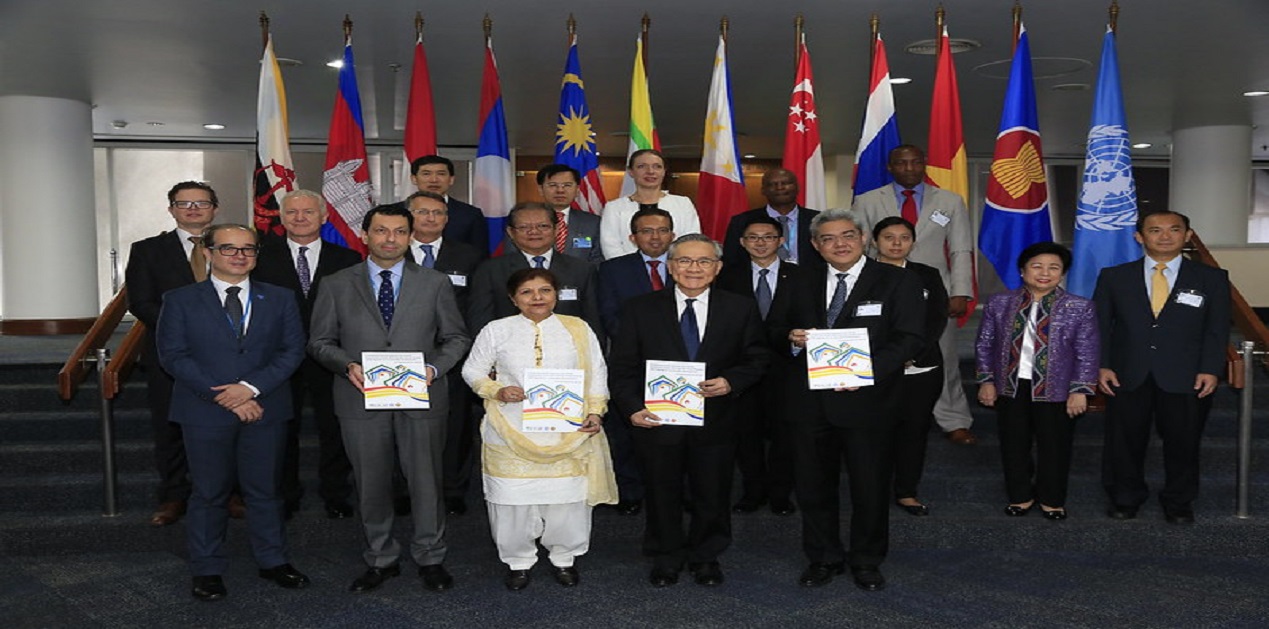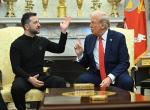The ASEAN under the Chairmanship of Vietnam has been preparing a draft for the mid-term review of the Overall Plan for the Implementation of the ASEAN Community Vision 2025. It is assessing the outcomes and accordingly working out a feasible timeline to improve the effectiveness and quality of implementation from now until 2025. The three pillars that ASEAN has envisaged namely the politico–security, economic and socio-cultural communities need commitment and cohesive plan of action to fulfill the objective of the ASEAN Community within a defined timeframe.
In terms of security ASEAN countries would like to address three major aspects which include economic, social and political security. However, among the ASEAN nations CLMV (Cambodia, Laos, Myanmar and Vietnam) would like to address issues such as food, water and related aspects. In fact, the proposals floated by mainland Southeast Asia and maritime Southeast Asia would be different. ASEAN community programme- Political-Security, Economic and Socio-Cultural Community would require midterm review in 2020 given the fact that the year 2025 is the deadline for its blueprint.
The much touted Initiative for ASEAN Integration (IAI) Work Plan III (2016-2020), needs a strong effort as only 19 out of 26 actions (73.1%) have been achieved. Given the fact that non-traditional security threats have hogged the limelight therefore work out a comprehensive plan of action to control its spread and work out a common collaborative programme in the region. This might include regional centers for public health emergencies, strengthening network of regional public health laboratories, and monitoring the working of risk mitigation centers. The need is therefore, to institute a regional disaster management centre which can have regional authority and act as coordination centre at times of crises. Nothing makes this as most relevant and necessary step to be taken as the ongoing COVID-19 pandemic. Here the ASEAN Defence Ministers Meeting Plus (ADDM+) mechanism assumes added salience especially in regards to evolving coordinated and joint responses to health emergencies/disasters like Covid-19.
One of the major issues which would build the ASEAN community would be liberal visa for business and possibility of exploring the movement of skilled personnel and undertaking joint venture initiatives. Terrorism, piracy, transnational crime and regional terrorism database need further impetus and support. However, the political renegades and human rights activists should not be included in the list as this would require a regional consensus. ASEAN visions needs strict timelines and completion commitment as it has been seen that most of the initiatives have lagged in terms of compliance and outcome.
For Vietnam as a chair of ASEAN there are myriad challenges. Vietnam should raise the issue of review of Treaty of Amity and Cooperation (TAC) and bring about more compliance from signatories including the major powers and dialogue partners. ASEAN faces a number of cases related to Illegal, Unreported, and Unregulated (IUU) fishing and this need to be addressed at global level so that a convention on IUU can be adopted. Vietnam must also address challenges related to education, promotion and protection of the Women and Children and their rights, skill development and vocational training.
Marine pollution and climate change have always resonated in the discussions in the ASEAN, and Vietnam must take these issues to reflect concerns in Southeast Asia and why there is a need for global efforts. Other issues such as peat land management, haze management through financial support and disaster management need careful articulation and proposals in this regard. These are recurrent issues which have created rifts between member nations including Singapore, Malaysia and Indonesia.
The ASEAN charter was reviewed in 2007 and it has been more than 13 years and its charter needs further review in current circumstances. The views of other countries on amending the ASEAN Charter, reforming the working style of ASEAN (especially the ASEAN Secretariat). The ASEAN Secretariat has representation from many dialogue partners including the US, India, and therefore it should be more international in approach. This requires showing the outcome report for each year for ASEAN meetings. The problem with ASEAN and its peripheral organizations is that the outcome report and the achievements in terms of tangibles have not reflected properly and as a result of which ASEAN meetings are increasingly seen as a ‘talk meetings’.
The ASEAN Secretariat needs to function under sub-committees which can highlight core focus areas and work accordingly. The dialogue partners which might have better expertise in certain areas have not been given due share in work and therefore new ideas could not permeate into the discussions. The dialogue partners might be able to suggest successful models related to regional economic and political coherence. However, given the fact that democracy has not been the major point of discussion in Southeast Asia, therefore the agenda points need to be managed by the ASEAN chair. Vietnam itself being a single party government may be able to steer the initiatives without the issue of interference and coercion among the member nations.
With changed circumstances and the rise of religious radicalism, transnational groups, political interference and the undue influence of dialogue partners have created a wedge between ASEAN homogenisation efforts. Even though most of the countries of ASEAN are at different levels of development but there is a grievance against the more developed countries from the underdeveloped countries. Their differences need to be addressed at ASEAN platform otherwise ASEAN would retreat back to the 1990 format with ASEAN-4 taking major decisions benefitting themselves. The dialogue needs to be initiated along with possible changes in ASEAN charter.
Vietnam needs to work as a bridge between the ASEAN and UN given the fact that it is going to be the member of the UNSC non-permanent member group. Under this initiative, it must raise the issue of sustainable development goals (SDG) goals in the Southeast Asia, gender and child care issues and the food security across the region. Further, issues such as education, health and sanitation need to be address which would create seamless synergies between the two institutions.
Major countries would like to highlight issues such as regional security, undue interference and also ASEAN countries not being able to prove their centrality and are taking this as granted. ASEAN has been withdrawing from major policy decisions related to security citing ASEAN consensus mode but the consensus has led to smaller countries dictating terms under influence from China. This might not augur well for ASEAN consensus building and ASEAN as an institution would have to reform its functioning and calibrate its agenda.
Vietnam in its role as ASEAN chair last time in 2010 had achieved a degree of success and had some setbacks but now with more support from dialogue partners can highlight grave dangers and emerging challenges in the areas of health, education, trade, phytosanitary and sanitary regulations and also compliance to the fair terms of trade. The dialogue partners believe that ASEAN can emerge as a binding force only when it cites achievable and work timelines. Vietnam can seek consensus on developing a uniform arms reporting mechanism across Southeast Asia to build confidence among member states while at the same time proposing multiple projects to promote ASEAN Defence industry. This would reduce Chinese interference and support through weapons and arms to select countries.
Under ASEAN vision the more seamless movement of investment, skilled labour, business persons, and capital needs to be pursued in letter and spirit otherwise the ASEAN community be it the case of common currency, customs union and other integrative efforts would not see the light of the day. ASEAN vision needs to work diligently on the green technologies and better economic models of development which are environmentally sensitive. Vietnam has got a longer time period to work on the concrete plan of action now when ASEAN summit has been postponed.
(The paper is the author’s individual scholastic articulation. The author certifies that the article/paper is original in content, unpublished and it has not been submitted for publication/web upload elsewhere, and that the facts and figures quoted are duly referenced, as needed, and are believed to be correct). (The paper does not necessarily represent the organisational stance... More >>
Image Source: https://www.flickr.com/photos/unitednationsescap/26236114497











Post new comment